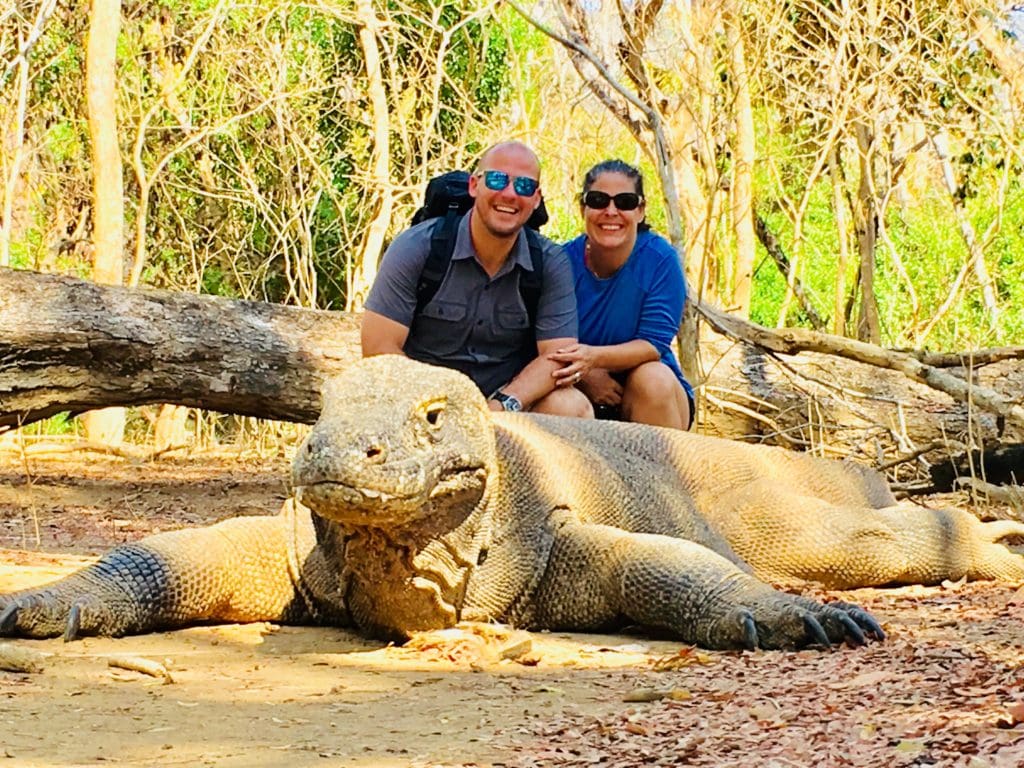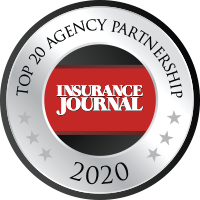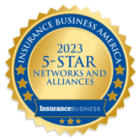Have you ever been curious about what a day in the life of an Iroquois Regional Manager looks like? Kurt Keller is here to share with us why he loves working in this industry. Kurt understands and shares the same outlook that independent agency owners have: an entrepreneurial spirit and a passion for their jobs. Find him on social here.
Edwin K. Morris (4s):
Welcome to the trusted advisor podcast brought to you by Iroquois group. Iroquois is your trusted advisor in all things insurance. I am Edwin K. Morris. Today’s guest is a graduate of Robert Morris university. His name is Kurt Keller, and he came to the Iroquois group in 2010 after jobs on the agency and carrier of the business. He is responsible for the Western Pennsylvania and West Virginia territories where he works with 98 member agents whose collective Iroquois premiums exceed $75 million. What’s different with you in 2019 from previous, in, in the world of insurance.
Edwin K. Morris (45s):
What, what was the big difference?
Kurt Keller (47s):
Yeah, so 2019 was a very successful year for me. I think there was really two things that drove our success. We brought on some new clients that were part of existing insurance clusters in the state of Pennsylvania. And an insurance cluster is a group of agencies that get together locally to do essentially what Iroquois group does nationally. And we were able to show them some additional profit sharing value by joining the Iroquois group. And so there were three different groups that I had brought in consisting of about 20 agents in total. And so that was a big reason for our market alliance growth, but then we also had some very high producing commercial lines agents who left some bigger shops and started their own companies and had very successful years writing new business.
Edwin K. Morris (1m 36s):
Oh, Kurt, that kind of brings me to a very good question. What is your role at Iroquois?
Kurt Keller (1m 40s):
Sure. So I’m what they consider a regional manager. And my role is to recruit new agencies to come into the Iroquois group, help them facilitate relationships with new carriers, as well as help use the Iroquois group volume and profit sharing deals to increase their revenue within their own agency.
Edwin K. Morris (2m 2s):
In this recruitment phase, what brought you to this? What experience and expertise got you here?
Kurt Keller (2m 8s):
Great question. So I started out as a member of an insurance agency. So I worked on the agency side for three years while I was in college and slightly out of college. And then I was called by travelers insurance to become a trainee in their underwriting development program. So I did that for about three and a half years, and I loved that job. They moved that function down to Hunt Valley, Maryland about 10 years ago. And so I was looking for a new position. I was introduced to Alan Kramer from Bart Robbins at travelers. And I’ve been here ever since.
Edwin K. Morris (2m 40s):
What’s the biggest personal or characteristic that is an attribute that you have to have for this job. You’ve kind of walked into this at a very ground level experience, right? And then you worked your way into this. So what’s the biggest attribute. What do you need?
Kurt Keller (2m 55s):
I really think that a key to success at this job is being able to explain more abstract ideas because when we are talking about profit sharing and what potential an agency may have, that that’s something that’s hard to describe. And also realizing that when you’re bringing on a client, they’re putting a lot of their own trust in you. And so I think when you realize how important these businesses are, you know, when you’re dealing with a larger company like an Amazon or a home Depot, you know, those are faceless organizations, but for the most part with insurance agencies, you’re dealing with people whose entire livelihood is wrapped up in this business. And I think when you realize that that’s how you’re dealing with them, not as a large corporation, but as, as a single greatest asset these people have, the idea that they’re inviting you into their world to help them is, is very humbling.
Kurt Keller (3m 49s):
And I, I think that realizing that is key to my success, anyway.
Edwin K. Morris (3m 53s):
Is it safe to say, then, these, the people that you’re dealing with and yourself, I presume it doesn’t feel like it’s just a job as your reference to the Amazon faceless organization, right? It’s them, it’s, it’s what they do. It’s what they, it’s like a core value
Kurt Keller (4m 8s):
I can get into it because they didn’t have a passion for it. It’s something that if they’ve found themselves in a situation where they’re trying to grow an agency, they’re doing it because they have a love of what they’re doing. And also knowing that they’re providing for their families. And a lot of times people start agencies so that they have something to hand down to their children. So it’s not just business. And I think when you, far too often, I’ve heard people say you can’t mix personal and business, but I think in this case, it’s incredibly important because if you don’t have an understanding of just how important every decision that person is making is, and for them to have you come in and basically go through your, their stuff, right?
Kurt Keller (4m 49s):
It’s like someone coming into your home and going through your drawers and saying, what’s this, what’s that – for them to be willing to go through that process with you is very humbling,
Edwin K. Morris (4m 58s):
Open dialogue, right? That ability to have active listening and open dialogue and, and solid communication builds that trust.
Kurt Keller (5m 6s):
Absolutely. And I think I’m fortunate that I had some experience on the agency side before I came to Iroquois. My mom has been in the industry for over 40 years. That was always instilled in me at that time too. She does a lot of operations, HR management technology, that sort of thing. But she always knew that she was working for someone who was using this business to provide for their livelihood. And it’s just a very different thing from, you know, being a, a CEO,
Edwin K. Morris (5m 34s):
How would you recruit somebody into this work? What do you look for?
Kurt Keller (5m 38s):
Into my job or, or to become a member?
Edwin K. Morris (5m 42s):
Either way. I mean, I’m just, I’m listening to you and I’m like, wow, these are all, it seems to me, characteristics that aren’t really taught in school.
Kurt Keller (5m 50s):
No, they’re not. I guess they call those soft skills sometimes. Right. But it’s acquired over time and experience, but everything is about the mindset. Trying to, if someone were going to come into my job and do this job, I would say there’s a few things. One, as much empathy as you can have for the people that you’re dealing with, understanding that, how important these things are to them. But also you, I work remotely. I work in, in Pittsburgh, Pennsylvania. There’s not another person that does what I do for Iroquois for 300 plus miles. And the key then is to be everywhere at the same time. So you have to be the organization in your territory.
Kurt Keller (6m 30s):
I handle Western Pennsylvania and West Virginia for the group. And I show up to every carrier meeting. I show up to any, any time an agency is going through a change, whether that’s an agency management system, maybe they have some questions about hiring practices. I show up to those meetings in person when possible. And I, that’s really the key, but it’s not as easy as it sounds because you do have to spread yourself thin sometimes, but the payoff and the reward is well worth it
Edwin K. Morris (6m 54s):
By being that, that face of the organization and the handshake and the heartbeat, that face to face gains much credibility.
Kurt Keller (7m 3s):
Oh, of course. I mean, I think when you’re having a face-to-face conversation, the body language is what, 90% of the communication, 80% of communication. So it’s really important for both sides to develop that trust and rapport that you can move forward. When I start recruiting agencies into Iroquois, sometimes it’s a one meeting and this makes a lot of sense and we go on. Sometimes it takes several years and, and being okay with that is also really important. There is no rush, the agency’s making a big decision and they should do it when they’re comfortable. I’m, I’m not there to push anybody into doing something they’re uncomfortable with
Edwin K. Morris (7m 39s):
Well as a measurement of success, it’s not how many did I get signed up this quarter? There has to be a long play here. You just, like you said, balance that out because I hear what you’re saying. Relationship sometimes, like you said, two to three years. So how do you measure success with that long of a play?
Kurt Keller (7m 57s):
I, I measure success and how long I’m contacted for things that aren’t directly related to my job. You know, when people start calling me for advice that has nothing to do with the way that I’ve tried to get paid, that’s when I know I’ve got someone that is enjoying the process at the very least. There are several prospects that I have for years now that are just good friends. And so they’ll call me about hiring practices. They’ll call me about agency management systems just to get my perspective because I’m in, in front of so many agencies and in front of so many carriers, but that’s, that’s how I measure success outside of finances
Edwin K. Morris (8m 31s):
That is an absolutely great measurement because that’s that, as you referred to, the soft skill, it’s the ability to communicate and build trust and friendships relationships beyond the business, within the channel of the business, but it grows beyond that and supports itself,
Kurt Keller (8m 48s):
Of course. And quite frankly, it makes the job more fun. If I was there just to get the premium revenue, it’d be very, very boring for me.
Edwin K. Morris (8m 55s):
All transactional, right?
Kurt Keller (8m 57s):
Yeah. Breaking out of that nine to five mentality is really important. I, you know, I’m there when the agency needs me, they’re not working nine to five. There’s no reason that I have to be restricted to those same things, but we have so much fun. Like we, you develop a relationship to a point and I’ve been fortunate to develop a territory from scratch. So I’ve chosen my clients on my own and it’s reflected in quite frankly, their personalities. I think you have to build your group around who you are and how you like to do business. And that means it may not be for everybody, but at some point you have to be okay with that as well.
Edwin K. Morris (9m 32s):
So to wrap things up, what would you say is going to be the strategic measurement of success five years from now?
Kurt Keller (9m 40s):
I’m at a point now where I’m still developing some new relationships. In five years, I think that my territory, I’d like to have about 120 members. Right now I’m about a hundred. So we’re not going to see a huge amount of membership growth, but where we’re going to see more return is in the depth of those relationships. And that’s both on a personal, a financial and a professional level where we’re taking the relationships we already have established and just making them stronger, not necessarily adding a lot of new memberships in mass,
Edwin K. Morris (10m 13s):
What’s your transition plan for the future? So you’re the lock pin of all this, the territory and those members and all that. You are the face, you are the connection. So what’s the transition plan.
Kurt Keller (10m 25s):
I’m not entirely sure yet. I hope, I hope I come up with something more developed. Right now as my territory grows, I know I’m probably gonna need some additional assistance. My wife has already in the industry. And so I would love to bring her in as, as support for me at some point so that we all, can all be part of the Iroquois family, but that’s, as far as I’ve gotten, as far as my next steps are.
Edwin K. Morris (10m 49s):
Got it. Well, thank you. And best of success to you and I hope to hear more.
Kurt Keller (10m 52s):
Oh, thank you so much. It was a pleasure.
Edwin K. Morris (10m 53s):
Thanks for listening to this edition of the trusted advisor podcast brought to you by Iroquois group. Iroquois, your trusted advisor for all things insurance, and remember get out of the office and sell. This program was recorded live at the Cohen multimedia studio on the grounds of Chautauqua institution. I am Edwin K. Morris, and I invite you to join me for the next edition of the trusted advisor podcast.



